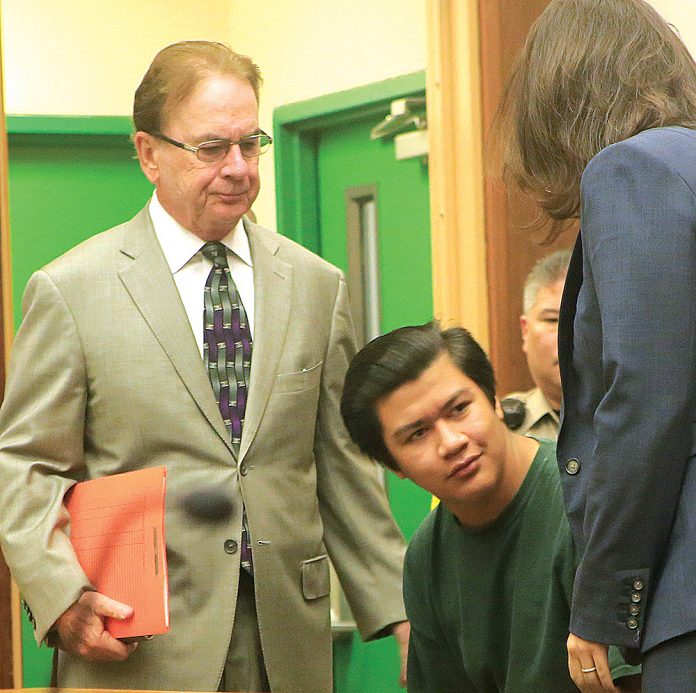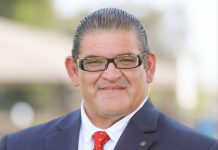
SANTA CRUZ COUNTY—Santa Cruz County officials are mulling a plan to retool the county’s public defender’s office, transitioning from its current private delivery system to a public one.
The move comes as the county’s contract with Biggam, Christensen and Minslof (BCM)—which has provided indigent criminal defense for 45 years—is set to expire in 2022. Contracts for two other law firms also appointed to provide indigent criminal defense—Page, Salisbury & Dudley, and Wallraff & Associates, expire at the same time.
Under the proposed plan, a Chief Public Defender appointed by the County Board of Supervisors would oversee public defender attorneys, all of whom would be county employees.
Private attorneys would handle conflicts, criminal appeals and post-conviction issues.
County officials say the plan would allow them to make sure the firms are living up to expectations, and would allow the public defender to work with agencies that can help clients, such as the Health Services Agency, Human Services Department and Probation Department.
In addition, bringing the public defender’s office under the county’s jurisdiction would allow it to hire 15% more attorneys, thus providing more consistent representation, county officials say.
The supervisors on Oct. 6 tabled the issue until November to give county staff time to meet with the public defenders, and other “justice partners” such as the District Attorney’s Office, Superior Court Judges and the Sheriff’s Office.
The supervisors also directed staff to find a way to hire the public defenders currently employed by the three law firms.
The county budgets a total of $13 million for public defender services, which is doled out in monthly installments, said acting County Administrative Officer Nicole Coburn.
BCM is currently invoicing $631,753.16 per month for a total of just over $7.5 million. It also receives about $222,800 annually to run the Clean Slate Program.
The proposed transition comes at the recommendation of Boston, Mass.-based Sixth Amendment Center, which conducted a study of the county’s services for criminal defendants who cannot afford their own attorneys.
According to the report, the flat-fee contracts paid to the three law firms have meant that no one person or department is accountable for indigent defense services. The contracts also lack accountability measures that would allow county staff to gauge the effectiveness of the services, the report says.
The report did not accuse any of the defense firms of wrongdoing. It does state, however, that flat-fee contracts can create situations in which law firms could focus on reducing costs rather than acting in the best interests of their clients.
The current model also leads to excessive caseloads due to inadequate staffing, the report states. Defendants in felony cases often do not have continuous representation for the same reason.
In addition, the flat-fee contracts have meant that the public defender law firms have not invested in the necessary technology to manage their cases, including an integrated case management system, the report states.
Larry Biggam, who runs the law firm with his partners Jerry Christensen and Jon Minslof, says that making the transition in the midst of Covid-19 restrictions—when most trials and increasing numbers of cases are delayed—would be adding fuel to the fire.
“To put a transition into this period would be chaotic,” he said.
Bigham also wants to ensure that his staff of 26 attorneys will be hired. That is important, he said, because of the knowledge of thousands of cases and client relationships they would bring with them.
One of the biggest concerns for Biggam is a proposal to end his firm’s “good cause” termination clause—meaning county officials need a reason to end its services.
Instead, county officials are proposing an at-will contract for the public defender, under which employees may be terminated at any time for any legal reason.
County officials say such a clause allows them to hold the public defender’s office accountable for the services it provides.
Coburn says that most counties throughout California have at-will contracts for their public defenders. In Santa Cruz, the County Counsel and Health Officer have such contracts, Coburn says, pointing out that only the Board of Supervisors has the power to terminate them.
Coburn stressed that the county has no concerns about the performance of the current public defender.
“It’s just not a best practice,” she said. “There is the potential for creating problems.”
Biggam counters that keeping a good-cause contract keeps the public defender insulated from political pressure.
“As a private law firm, we control the matter and means of providing services,” he said. “They say ‘you’re not accountable.’ We say, ‘that means we’re independent.’ When they use the word ‘accountability,’ red flag. That means they want control.”
Coburn says the transition has been in the works since 2016. She also says the county plans to cure current attorneys employed by BCM.
“This has been under discussion for a long time in terms of trying to transition to something else so that we can prepare for the future and prepare for the succession,” she said.
Biggam acknowledges that the county has always planned to transition to a public model. But it is the way the transition has gone that concerns them.
Biggam and Christensen, along with Superior Court judges Paul Burdick and Tim Volkmann all said during the Oct. 6 meeting that the Sixth Amendment investigation and recommendations came without asking either the public defenders or the judges for their input.
“All of a sudden you have a real chance of taking and gutting a very vibrant, very together office because of your foolishness of not understanding what really goes on over here,” Biggam said.
Christensen agreed.
“We have been really marginalized from this transition process, and it is really problematic,” he said.
Judge Burdick praised the current public defenders, saying that he has never seen a problem with their services and knows no instance of reversals due to ineffective counsel.
“There is a better way to do this, and I think you can find a better way to do this if you involve the court in the process,” Burdick said.
Since the meeting, Coburn says she has reached out to Biggam and Christensen and plans on doing the same with the judges.
“We all have the same goal and that’s to strengthen the system,” she said. “We’re all focused on the future and creating the best model for Santa Cruz County.”












